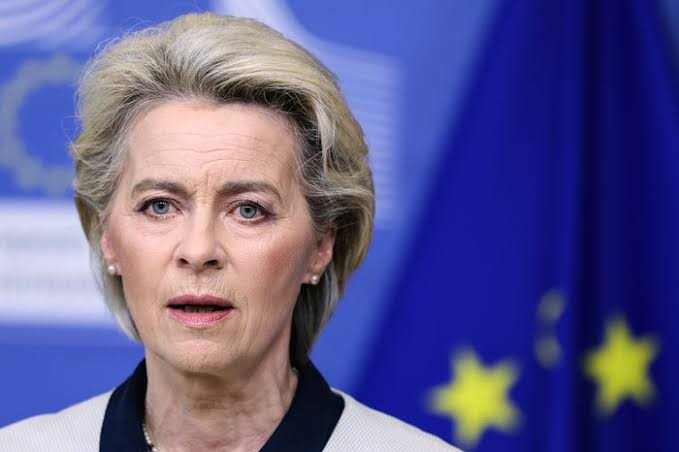On 25th February, the European Union (EU) decided to sanction President of Russia, Vladimir Putin and Minister of Foreign Affairs, Sergey Lavrov.
The EU also imposed restrictive measures on the Russian Federation’s National Security Council along with the remaining members of the Russian State Duma who supported Russia’s immediate recognition of the self-proclaimed Donetsk and Luhansk .
As the Russian army violently proceeded towards Ukraine, Ukraine’s leader pleaded for quick and forceful sanctions in order to punish Russia for invasion.
Therefore EU states agreed to freeze the European assets of Putin and Lavrov on Friday.
According to the sources, a senior European Union diplomat mentioned that although the Russian leaders may not have huge assets in Europe, the move against them personally was “a politically important signal”.
The European council agreed on a further set of individual and economic restrictive measures. The sanctions cover various sectors like finance, energy, transport, technology and visa policy.
Individual Sanctions
These sanctions will apply to 654 individuals and 52 entities . The restrictive measures include travel ban, asset freeze and prohibition to provide funds.
The Individuals who facilitated the Russian army aggression from Belarus are in the EU’s target list.
Financial Sector Sanctions
The council will cut off Russia’s access to EU’s most vital capital markets and increase borrowing costs for the sanctioned entities.
Russia’s industrial base will experience a hit due to :
- Restriction on lending and buying of securities by Russian banks and government. And complete asset freeze and financial ban on three major Russian Banks.
- Around 70% of the Russian banking market and key state owned companies will not be able to refinance in EU capital markets.
- The Russian elite will be prohibited from depositing in EU banks and it will be difficult for them to hide their money.
Energy Sector Sanctions
The EU planned to prohibit the sale, supply, transfer or export of specific refining technologies to Russia. As a result of the export ban , it will be tough and expensive for Russia to upgrade its oil refineries.
According to the sources in 2019 with exports of refined oil, Russia’s export revenue was EUR 24 billion.
Transport Sector Sanction
The EU imposed an export ban on goods and technology in the aviation & space industry and restricted provision of insurance, reinsurance, maintenance services, technical and financial assistance required for those goods and technology.
These prohibitions will obstruct Russia’s fleet maintenance.
Technology Sector Sanctions
Additional restrictions on export of dual-use goods and advanced technology were introduced by the EU.
Russia’s access to important technologies such as drones and softwares related to drones and encryption devices are limited.
This will hit Russia’s technological development and advancement.
Visa Policy
Visa free travel for diplomats and visa facilitation for Russian officials and business people are suspended. However, this will not impact Russian citizens.
Hence the EU sanctions will have a major impact on the Russian economy.

